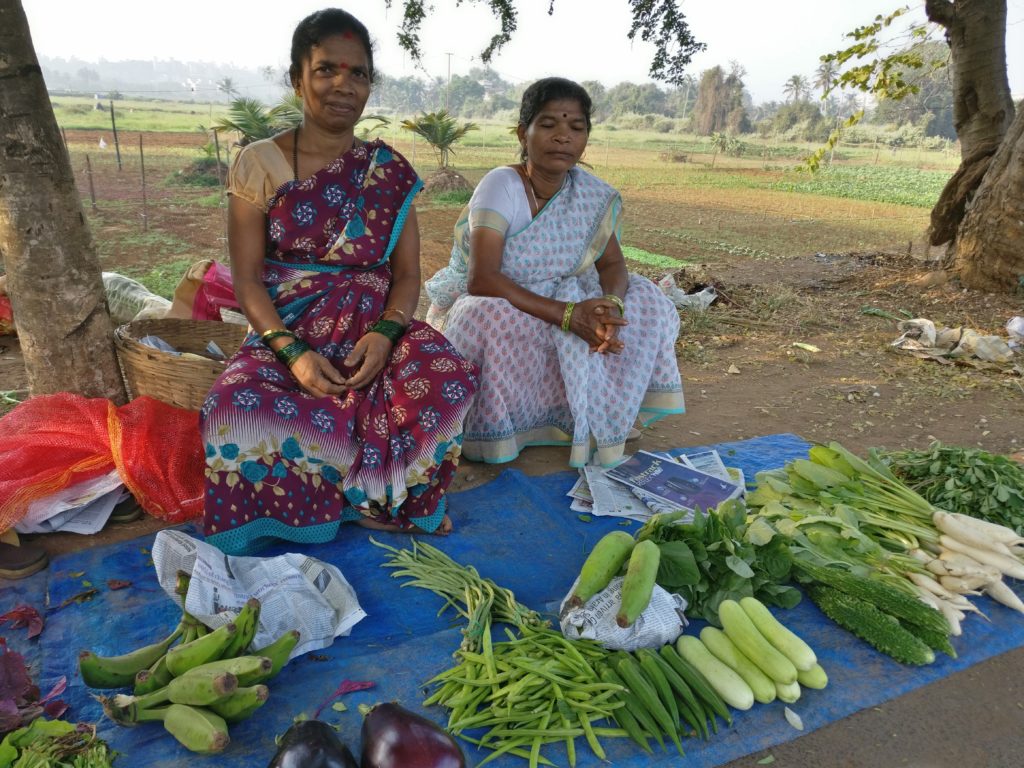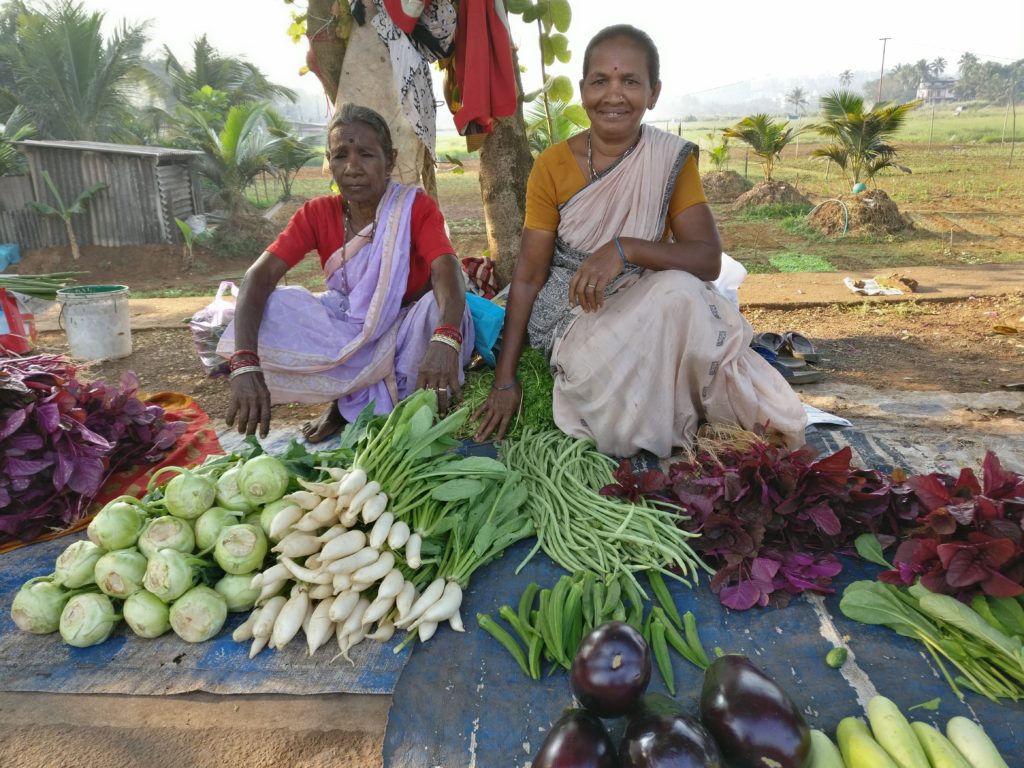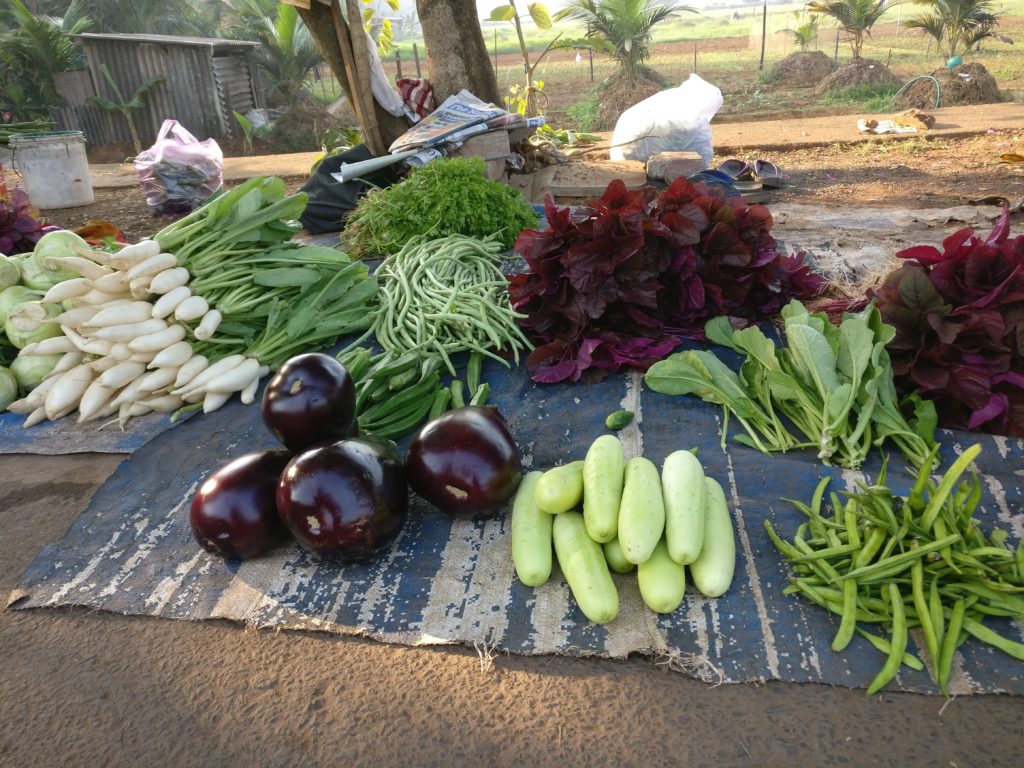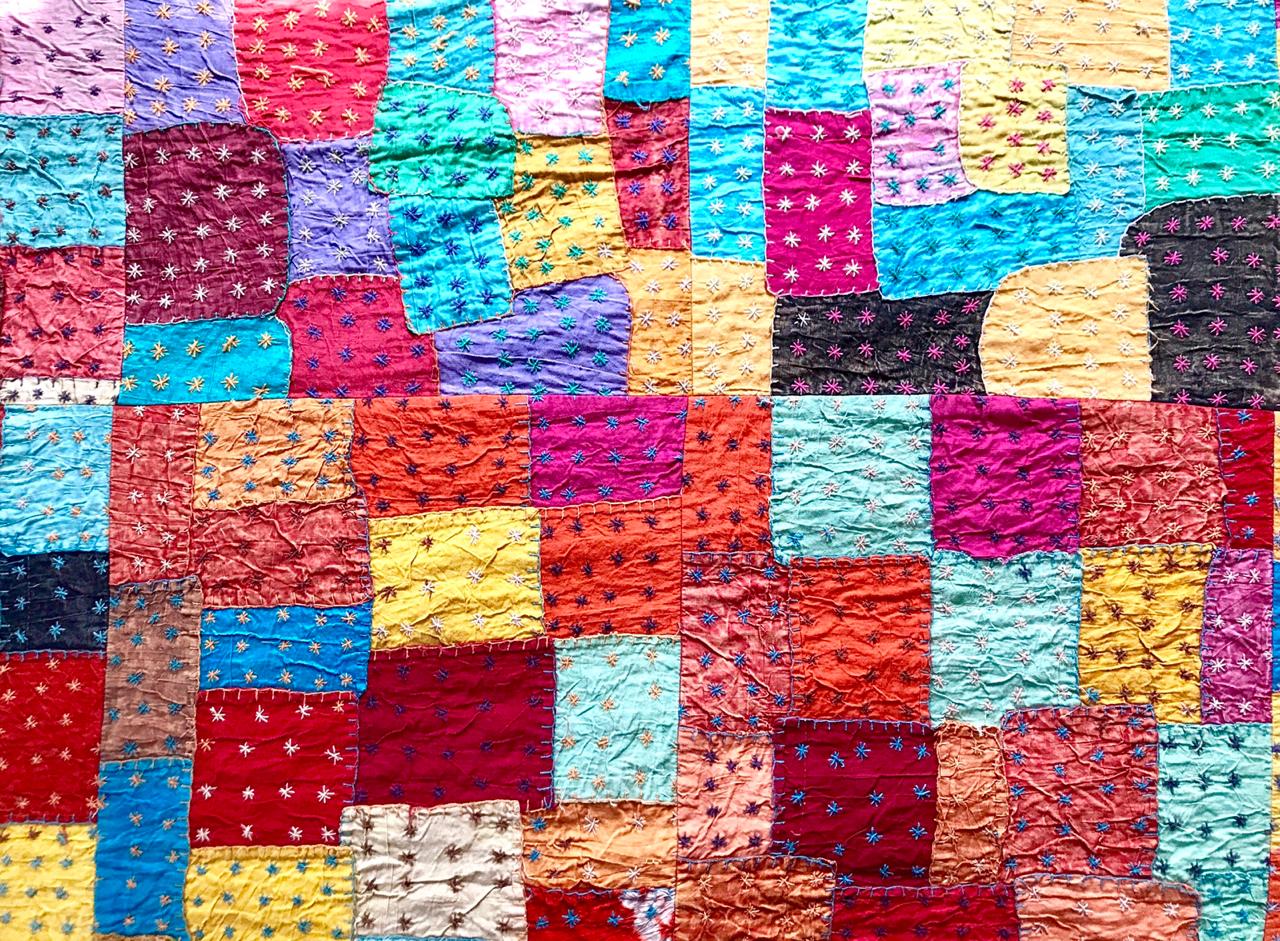Suman woke up at 5:00 am with a start, worried that she has overslept. When she noticed that her husband’s cot was empty, she let out a sigh of relief. Ganesh, her husband, wakes up every morning at 4:00 to go to the fields to water the plants and manure the fields from time to time. This done, he waits for Suman to come over with the cane baskets and kaanji (rice gruel) and after a little bit of rest and breakfast, together they start gathering fresh brinjals, tāmbdi bhāji(red amaranth), radishes, ladies fingers before sunrise. They are ready by 7:30 am with their baskets of seasonal vegetables and fruits, for the day to start.

Suman and many other women like her, line the Taleigao road every morning and evening, with their fresh produce neatly spread out in front of them. For these women, attracting customers is not very difficult. People flock around them-to buy these farm-fresh veggies regularly. It is a common sight on the Taleigao– Dona Paula highway, commuters, and people going for their regular walks, bikes and cars stopping to haggle to buy these locally grown vegetables and fruits from these women.

Another cultivator, Savita Manik comes every morning by 7:30 with her neighbour Lakshmi Bandodkar to sell the fresh vegetables. Before she even opens her baskets and unwraps the sitting mats, there are passers-by stopping to buy her goods. With continuous stream of customers, she finds a little time to talk to me about her life. Hailing from Khandepar, Ponda, Savita came to Taleigao after her marriage 20 years back. Since then, she has made Taleigao her home. She shared with me a few recipes to cook the snake gourds stuffed with shrimp and was amused and surprised that I am a vegetarian and don’t eat fish at all. She then gave me a couple of more recipes to prepare sabji (vegetable preparation) using the leaves of mooli (white radish) and tāmbdi bhāji(red amaranth) which are Goan delicacies. There is very little land left for farming in this part of Goa. With construction of apartments high on the list, lucrative money offered by the builders to these local farmers, and increasing stress on cost of living in Goa, much of the land over the last one decade has fallen prey to new luxury apartments in the area. Asked whether they are happy with just their land cultivation, Suman, a regular vegetable grower in Taleigao goes silent. Families like hers are often torn between a better lifestyle and love for their land and while some succumb to the former, many still are trying to hold on to their lands with the hope that they can some day pass it on to their children.

Driving back home, bags filled with my precious goods, I find myself saying a quick prayer under my breath that Goa, which is experiencing rapid change everywhere should at least not give up on its land and her way of living. Where else will one find a cosmopolitan culture, urban population, dotted with a pleasant rural setting? While development is an important aspect of any place and its people,commercialization especially in a small state like Goa is only going to affect its traditions, culture and customs and permanently change the face of the state.

రాముని, భూమిని నమ్ముకున్నవాడెవడూ చెడడు అని సామెత. నేను రెండో కేటగిరీలో లేక అప్పుడప్పుడూ అసంతృప్తిగా ఫీలవుతాను. పట్టణీకరణ, ఆధునిక జీవన శైలీ, పంటకి గిట్టుబాటు ధరలు లేక నష్టపోవటం, పల్లెల్లో సరైన విద్యా, వైద్య సదుపాయాలు లేకపోవటం వల్ల రైతులు భూములు అమ్ముకొని పట్నాలు చేరి చాలా ఇబ్బందులు పడుతున్నారు.
Yes I feel the same too. I feel those who depend on farming should be given certain incentives so they can continue their occupation. Yes there is always another side of this story, I totally agree.